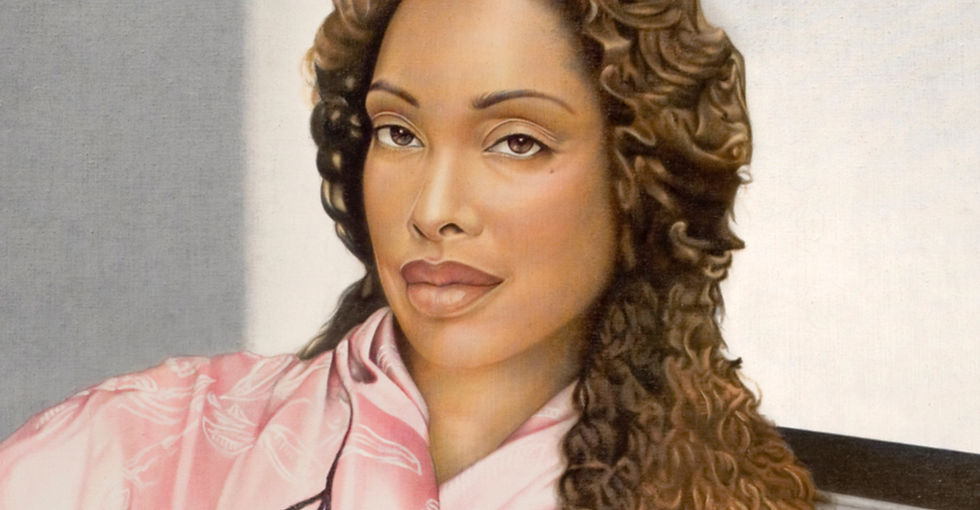Creative Workshop
- colin quashie

- Feb 13, 2025
- 3 min read

As part of my current exhibition, Linked, at the Morris Center for Lowcountry Heritage in Ridgeland, SC, I had the opportunity to conduct a creativity workshop—an experience that was as fulfilling for me as it was, I hope, for the participants. The workshop was rooted in personal experience, drawing from lessons I’ve learned over nearly three decades of navigating the creative world.
When I first embarked on this journey, I was like a ship with no direction—adrift in a vast sea of creativity, aware of its presence but unsure of how to engage with it. I knew I wanted to be a part of it, but I lacked a clear understanding of my role. Then, after a fateful exchange with magazine publisher John Johnson (EBONY Magazine), I came to a realization that would forever change my approach to art. He inadvertently unlocked my creative voice, showing me that creativity isn’t something you find—it’s something you cultivate, something that is already within you, waiting to be acknowledged and awoken. That realization set me on a path I have faithfully followed ever since.
Unlocking Creativity Through the Unexpected
The core of the workshop focused on shifting perceptions and breaking down the barriers that many people unknowingly place around their own creative potential. I began by asking participants to choose ordinary, handheld household items—objects so familiar that they often fade into the background of daily life. Their task was to describe how these objects subconsciously related to their personal creative state. At first, this exercise often brings puzzled looks or hesitant answers, but once they let go of their initial skepticism, something incredible happens: they start making connections they never realized were there.
From there, I challenged them to list 15 alternate uses for their chosen object. This might sound simple, but it forces a shift in thinking. The goal isn’t just to stretch the imagination—it’s to prove that creativity isn’t confined to traditional artistic or musical expression. It’s about problem-solving, reimagining, and seeing beyond the obvious.
The Misconception About Creativity
One of the most common refrains I hear in my workshops is, "I'm not creative." It usually comes with a self-deprecating laugh or a dismissive wave of the hand. "I can’t even draw a stick figure," they’ll say, or "I wish I could see things the way you do." The underlying assumption is that creativity is some exclusive talent bestowed upon a lucky few.
But creativity is not about artistic skill—it’s a way of thinking. It’s a mindset, a lens through which you view the world. Some of the most creative people I know aren’t painters or musicians; they are problem-solvers, inventors, and storytellers in their own right. Creativity is in the way a chef reinvents a recipe, the way an entrepreneur finds a solution to an overlooked need, or the way a teacher inspires students to think beyond the textbook. The biggest challenge is helping people recognize that creativity is already embedded in their daily lives. They just have to acknowledge it, nurture it, and allow it to grow.
Building a Creative Mindset
As the workshop progressed, we moved through a series of exercises designed to reinforce these ideas, each one building on the last. We explored creative goals, discussed habits that foster inspiration, and examined ways to overcome the mental blocks that stifle new ideas. Many participants had “aha” moments, realizing that the barriers to creativity are often self-imposed.
A key takeaway from the session was that creativity thrives in an environment where curiosity is nurtured, and mistakes are not just accepted but embraced. The fear of failure is one of the greatest inhibitors of creativity. Many people are so afraid of being "wrong" that they never give themselves permission to experiment. But creativity isn’t about perfection—it’s about exploration. It’s about allowing yourself the space to think, to try, to fail, and to try again.
A Transformative Experience
The three hours flew by in a whirlwind of conversation, laughter, and revelation. By the end of the session, I saw a shift in the room. Participants who had initially been hesitant or unsure were now engaged, energized, and eager to apply what they had learned.
For me, these workshops serve as a reminder of why I do what I do. Creativity isn’t something you keep to yourself—it’s something you share, something that grows when it’s passed from one person to another. Seeing people unlock their own potential, recognizing that they too are part of the creative process, is one of the most gratifying experiences I can have.
I walked away from this workshop reinvigorated, reminded once again that creativity is not a privilege—it’s a birthright. And I can't wait to do it again.




Comments